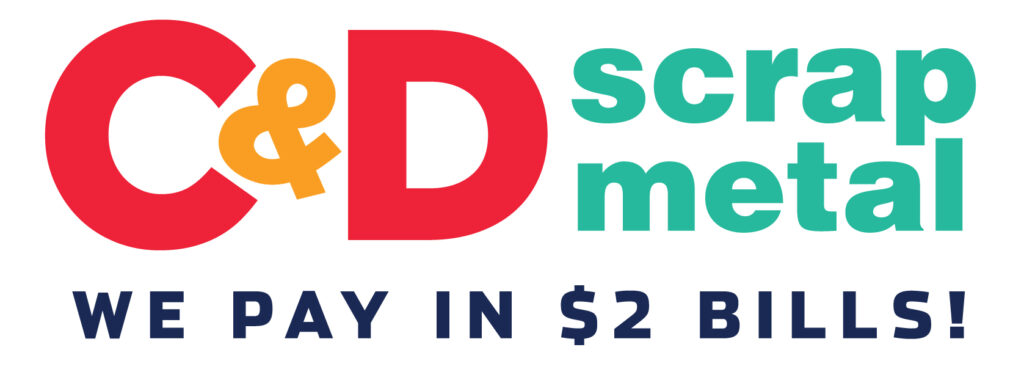Know Your Ferrous Metals

Iron and steel, the dynamic duo of ferrous metals, are a fundamental part of our modern world. These metals are packed with iron and have magnetic properties. They're everywhere, from the buildings we work in to the pots and pans we cook with. Their strength, flexibility, and ability to be recycled make them very important in construction, transportation, manufacturing, and household goods.
At C&D Scrap Metal, we accept various ferrous metals like iron, steel, cast iron, and wrought iron. Recycling these materials with us helps the environment and saves natural resources. Got old appliances, leftover construction materials, or industrial scraps? We offer a simple way to dispose of and recycle your ferrous metals responsibly.
Types of Ferrous Metals
Iron
- A primary component of many ferrous metals, known for its malleability and strength.
- Commonly used in construction, manufacturing, and various industrial applications.
Steel
- An alloy made primarily of iron and carbon, with various alloying elements like chromium, nickel, or manganese to enhance properties.
- Widely used in construction, automotive manufacturing, aerospace, and household appliances.
Cast Iron
- Contains a higher carbon content than steel, making it hard and brittle.
- Often used in pipes, automotive parts, cookware, and machinery due to its excellent heat retention and durability.
Wrought Iron
- Low carbon content, making it tough, malleable, and resistant to fatigue.
- Commonly used in decorative items, fencing, and railings due to its ability to be easily worked and shaped.
Common Applications of Iron & Steel

Residential Uses
Major Appliances
Refrigerators, ovens, washing machines, and other household appliances rely on the strength and durability of steel.
Kitchenware
Cast iron pots, pans, and cutlery are essential kitchen items known for their heat retention and longevity.
Furniture and Fixtures
Many household fixtures and furniture, such as bed frames, shelving units, and light fixtures, are made from steel and iron because of their strength and visual appeal.

Commercial and Industrial Uses
Construction
Beams, rebar, and structural supports in buildings and infrastructure projects utilize the robust properties of steel and iron.
Transportation
Vehicles, including cars, ships, trains, and airplanes, incorporate steel and iron components for their strength and durability.
Packaging
Steel cans and containers are commonly used for packaging food and beverages, providing durability and protection.
Machinery & Equipment
Industrial machinery, agricultural tools, and equipment rely heavily on the strength and resilience of iron and steel to perform demanding tasks effectively.
Make C&D Your Partner in Recycling
Recycling ferrous metals is not just a necessity but also a responsibility. By doing so, you contribute to a greener world for future generations. At C&D Scrap metal we want to make the process both easy and profitable for you. We offer four convenient locations with knowledgeable staff and clear communication. Contact us for a quote today.
